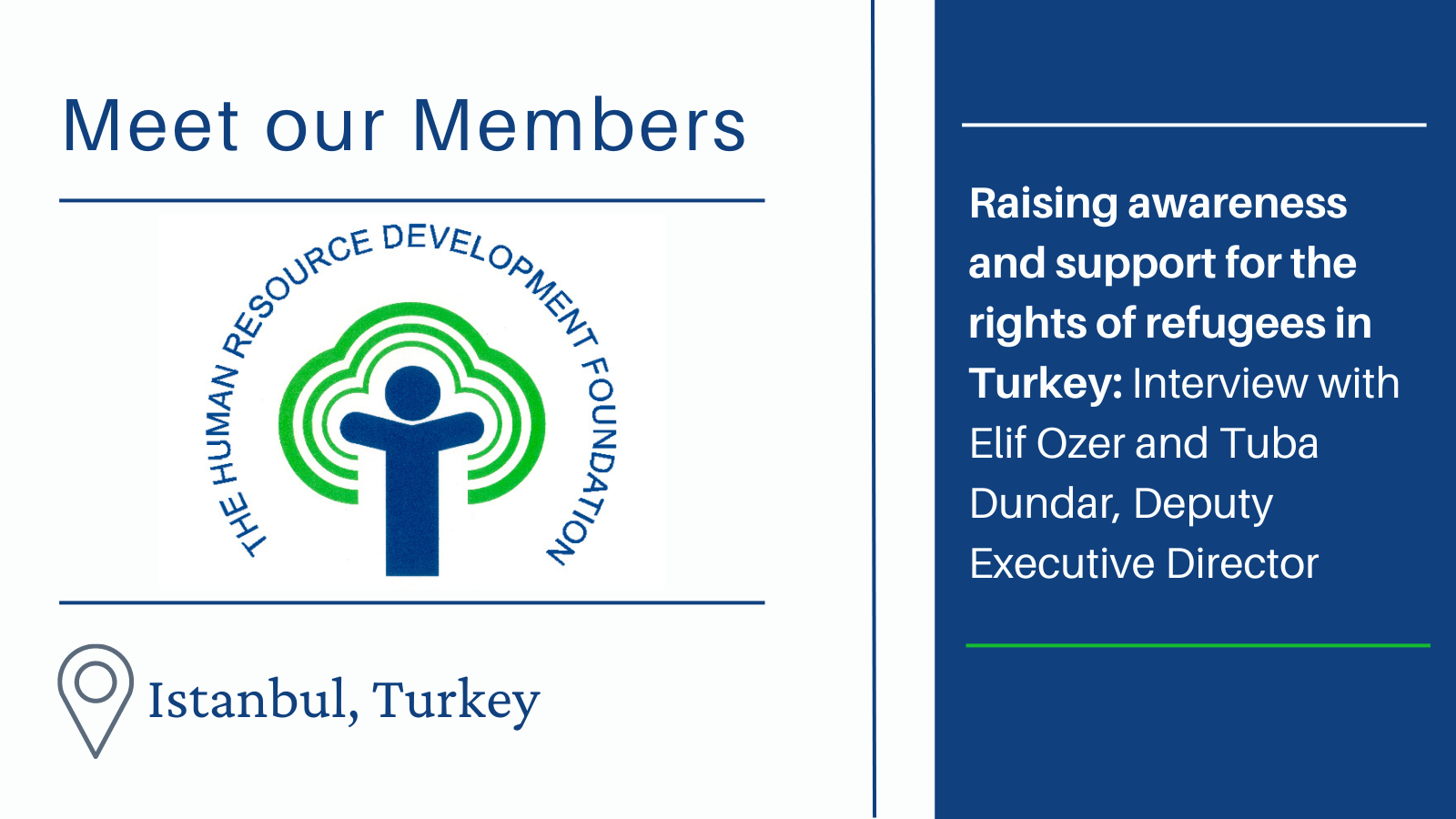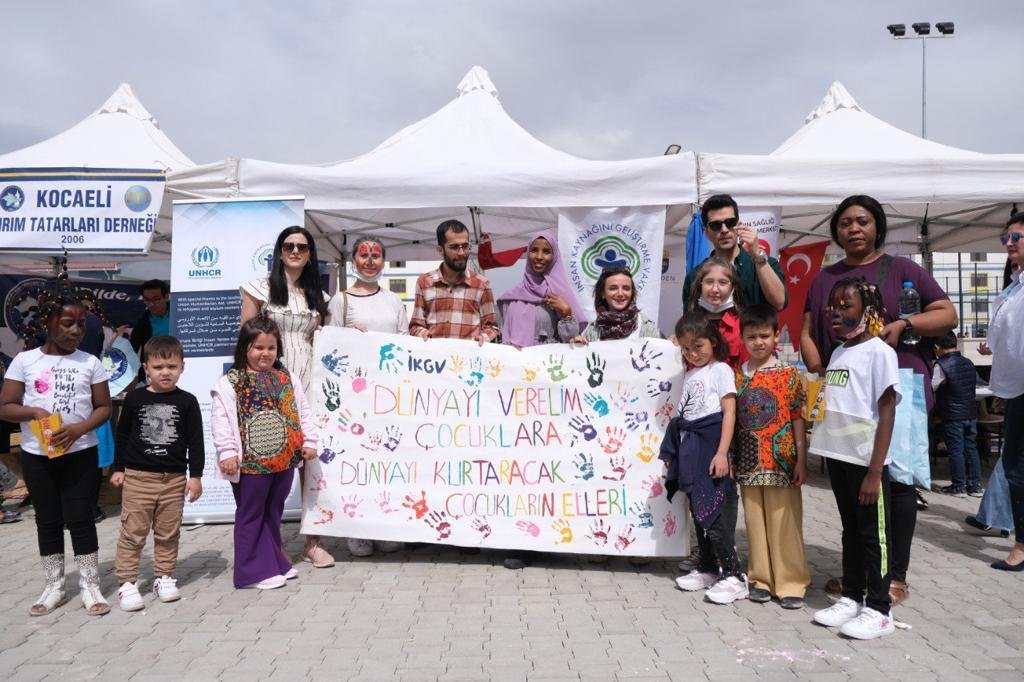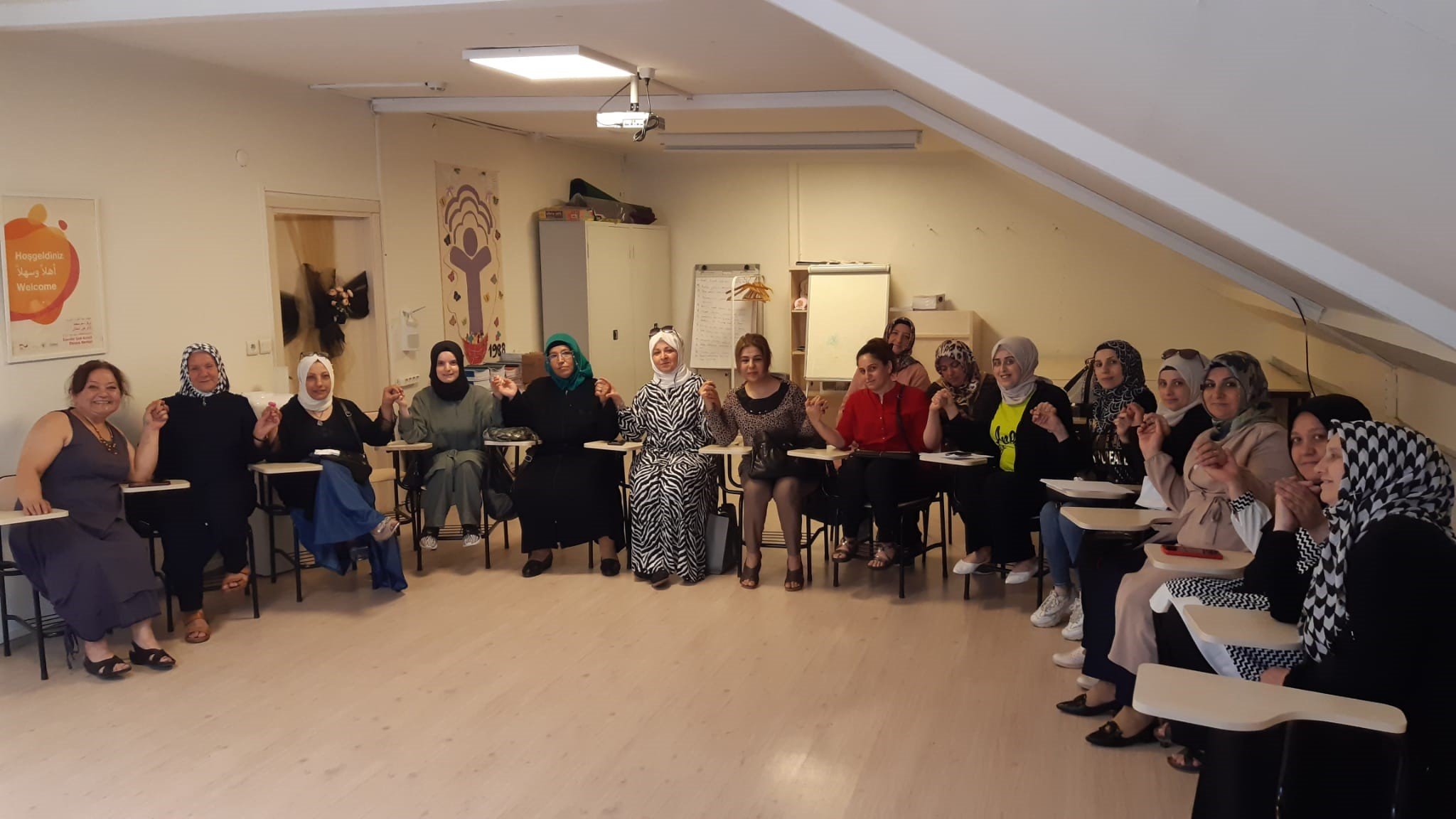Meet Our Members: The Human Resource Development Foundation

Human Resource Development Foundation (HRDF) is a member of GAATW based in Istanbul, Turkey. In October 2022, Jennifer Janssen from the GAATW secretariat sent a set of questions to Elif Ozer and Tuba Dundar, Deputy Executive Director, to better understand the organisation's history, current work and context. The answers were sent by email.
Jennifer Janssen: When was your organisation founded and why?
HRDF: Established in 1988, Human Resource Development Foundation is a non-profit, non-governmental organisation in Turkey. HRDF has been working in the area of population and development since its establishment. Starting in the 1980s, Turkey has become a destination country for migratory movements. Among the new migrants are those who approach Turkey as a transit country to reach Western Europe; asylum seekers; those who come to settle; those who come to work and lastly, people who are deceived and become victims of trafficking.
As migration is a dynamic phenomenon, HRDF has been working with migrants and refugees since its initial years, and since 2001 the scope of the work has expanded. HRDF’s Refugee Support Program evolved from legal counselling in Istanbul to the provision of a more integrated support to thousands of refugees in six more cities.
We also have an Anti-Trafficking Program, which we established in 2004 and it was the first NGO anti-trafficking programme in the country. We’ve been an active part of National Referral Mechanism for victims of trafficking in Turkey from 2004 to 2017 until our shelter was closed.
The programme was carried out in cooperation with state authorities and had two main components:
- Direct victim assistance: HRDF opened the first shelter for foreign female victims of trafficking in Turkey and provided victim-support services until the end of 2016. More than 500 women have been supported by the programme.
- Awareness-raising and capacity building activities directed at various target groups, such as law enforcement officers, NGO workers, refugees, migrants, human trafficking victims and general public through trainings, seminars, workshops, group discussions, conferences, online meetings as well as producing information materials including brochures, posters, booklets and books.
Following the closure of the shelter, we began providing anti-trafficking trainings to increase the capacity of refugee support NGOs to mitigate human trafficking risk of refugees.
 |
| On Turkey’s National Sovereignty and Children’s day in April, HRDF organised activities with local and refugee children. |
JJ: What are the main issues you are working on at the moment?
HRDF: Turkey hosts the world’s largest population of refugees and asylum seekers, with an estimated four million “persons of concern”, of whom 3.7 million are Syrians registered under Temporary Protection (TP), according to the PMM statistics and 330,000 are International Protection (IP) applicants and status holders, according to UNHCR statistics.
In this context, it is not surprising that our largest programme is the Refugee Support Program. It covers both IP status holders who are mainly from Iraq, Iran, Afghanistan, and several African countries and TP status holders who are mainly from Syria. The main aim is to support refugees in Turkey to enjoy their rights and to access available services as well as to encourage social cohesion among the host and refugee populations. Another component is to advocate for the rights of the refugee by working closely with public authorities, trying to raise their awareness on refugee-related matters.
JJ: What are some of the main challenges for refugees in Turkey?
HRDF: There are many. Perhaps the most obvious one is the economic situation. Because of the deterioration of the Turkish economy, poverty among refugees has risen to such a point that some are not able to meet their basic needs. Then there’s Covid-19, of course. The pandemic has been a major protection issue since 2020. It had a devastating impact on refugees’ psychosocial well-being due to increasing unemployment, lengthy social isolation and lack of socialisation for children in the context of distance education. Then there’s registration: there are problems regarding the place of registration. Overpopulated city administrations are declining new registrations. Unregistered individuals remain the most vulnerable without access to services and international protection. Children face discrimination and bullying in school leading to withdrawal from schooling in extreme cases. Also, there are parents who experience problems with school registrations. Lastly, there are many children in the labour force.
Due to the economic crisis, high inflation, and increase in poverty in the country, refugees are facing more discrimination and feeling more unwelcome, as they are perceived by locals to be one of the causes of poverty in Turkey. And because rent prices are rising rapidly too, more and more refugees are facing the risk of eviction. This could lead to increased homelessness, which has never been a major problem in Turkey.
Health coverage for refugees is decreasing. Individuals with special needs (survivors of gender-based violence, pregnant women, people over the age of 65 and under 18) and people with ongoing treatments can be covered under refugee health coverage but constant referrals and paperwork support is needed due to bureaucratic processes.
Lastly, the demand for third-country resettlement continues. Many of the beneficiaries asking for resettlement have highlighted the increasing hate speech and discrimination, as well as the deteriorating economic conditions. Due to limited options for resettlement to third countries, many IP applicants (non-Syrian refugees) have to reside for many years in cities where they are registered, often facing economic hardship as well as difficulties in accessing services.
 |
Local women along with Syrian refugee women come together to mark World Refugee Day in June 2022. |
JJ: How do you learn from refugees?
HRDF: HRDF gets together with beneficiaries in its eight refugee offices via participatory discussions with community members to identify priorities and challenges. Social workers organise regular meetings with community leaders to facilitate the inclusion of beneficiaries in decision-making. HRDF teams organise quarterly focus group discussions as part of their duties.
JJ: Thank you for your time and for sharing about your work with us.

